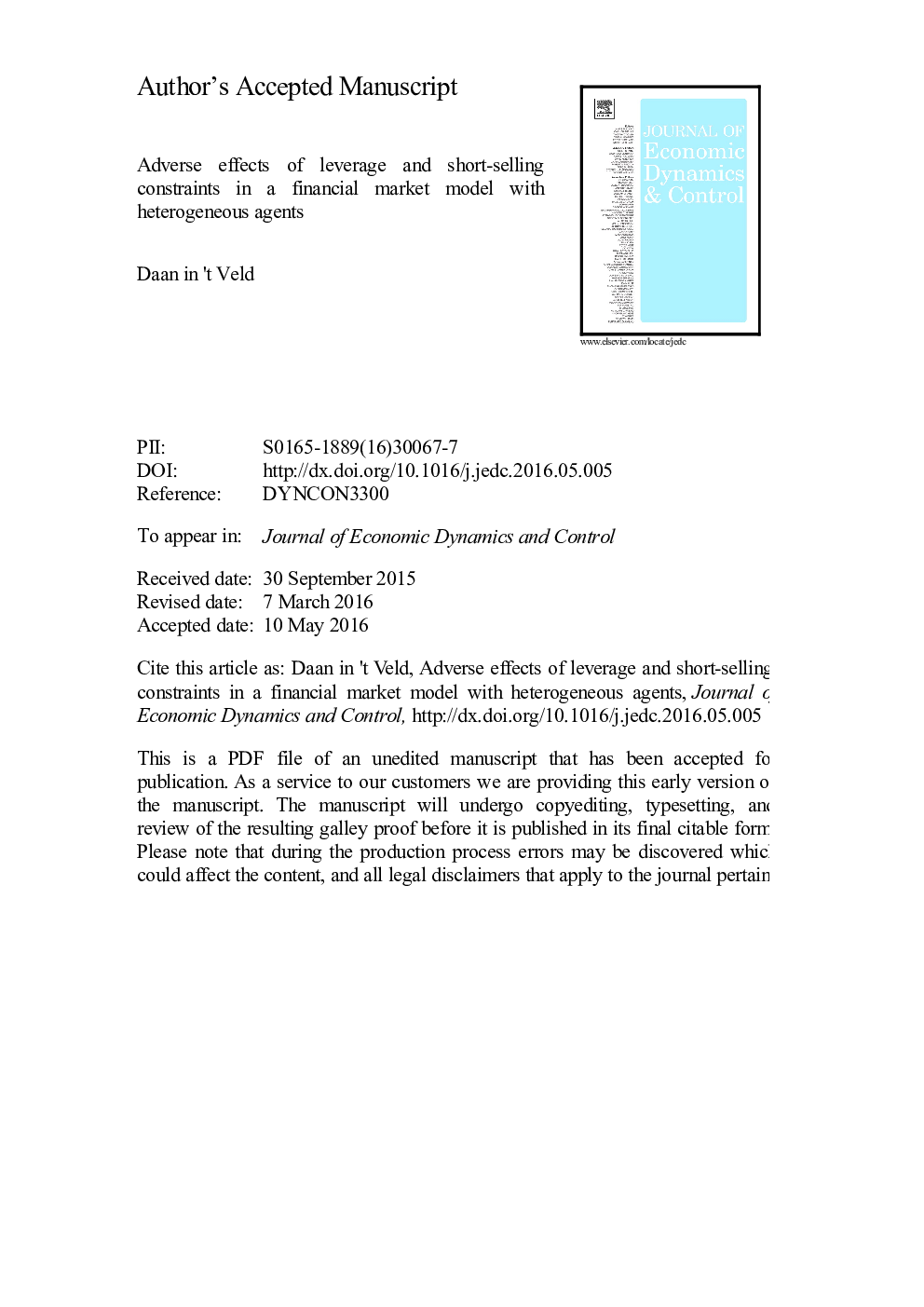| Article ID | Journal | Published Year | Pages | File Type |
|---|---|---|---|---|
| 5098141 | Journal of Economic Dynamics and Control | 2016 | 45 Pages |
Abstract
This paper investigates the impact of leverage and short-selling constraints on financial market stability. Investors׳ demand is modelled in a well-known asset pricing model with heterogeneous beliefs. In particular, I generalise the heterogeneous agents model of Brock and Hommes (1998) and Anufriev and Tuinstra (2013) to allow for leverage constraints as well as a short-selling tax. I consider two examples of adaptive belief systems describing the coevolution of prices and investors׳ beliefs. First, if the market is inhabited by fundamentalist and chartist traders, demand constraints have potential adverse effects and may restrict the stabilising fundamentalist strategy such that mispricing and price volatility increase. Second, if the market is inhabited by fundamentalists, optimists and pessimists with fixed beliefs, demand constraints drive down price volatility, but mispricing remains. The results suggest the stabilising effects of demand constraints in financial markets are limited. Only if asset prices are too high compared to fundamentals, policy makers should consider constraining leverage ratios in order to deflate financial bubbles.
Related Topics
Physical Sciences and Engineering
Mathematics
Control and Optimization
Authors
Daan in ׳t Veld,
